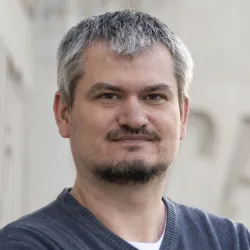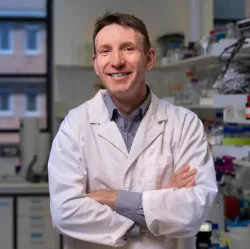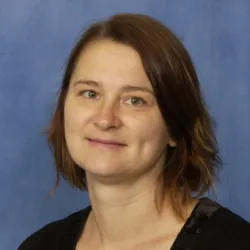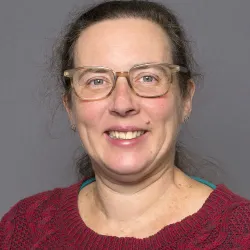Meet the team
Centre Executive & Operations Team

Professor Thomas Preiss
Centre Director
Thomas is as a global authority in the field of mRNA biology. Over three decades, his RNA research has led to insights that are key features of today’s successful mRNA therapeutics, making him an indispensable architect of our current scientific achievements.

Associate Professor Jiayu Wen
Deputy Director
Jean’s expertise lies at the intersection of RNA-mediated post-transcriptional gene regulation and the intricate world of computational biology.

Anna Maria Benc
Centre Manager
Anna brings significant professional experience, having supported prestigious research alliances including the Centre for Personalised Immunology, the Australian Genomics Health Alliance, Canberra Clinical Genomics and eWater Co-operative Research Centre (now eWater Ltd).

Professor Eduardo Eyras
Eduardo is a highly regarded expert in the creation of advanced computational tools tailored to the study of RNA biology. Eduardo’s expertise in developing cutting edge computational solutions has consistently addressed a wide spectrum of intricate challenges within the field of RNA biology.

Associate Professor Riccardo Natoli
Riccardo, in collaboration with his dedicated team have pioneered the creation of a unique rodent model for dry Age-Related Macular Degeneration, a breakthrough innovation of great significance in the realm of miRNA therapeutics and diagnostics research.

Dr Tatiana Soboleva
Tatiana's research delves into the intricate mechanisms governing testis-specific epigenetic regulators, including histone variants, and their impact on pre-mRNA splicing, gene expression and genome compaction within their physiological environment of the testis.

Dr Nikolay Shirokikh
Nikolay is a distinguished molecular biologist who focusses on comprehensive investigation and application of homeostatically active and evolutionary significant RNA.
Our Research Fellows
Our Group Leaders

Associate Professor Tamás Fischer
An expert in nuclear non-coding RNAs with a focus on R-loops and RNA-DNA hybrids.

Professor Ian Cockburn
Ian is a malaria immunology expert, leads pioneering research on B cell responses to malaria and vaccine efficacy.

Associate Professor Marian Burr
Marian is a clinician scientist and Snow Fellow at ANU, leads cutting-edge research on cancer immunology and epigenetics, focusing on overcoming immunotherapy resistance and improving outcomes for advanced cancer patients.











